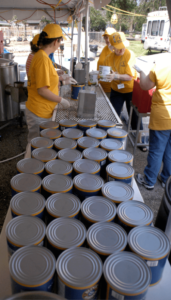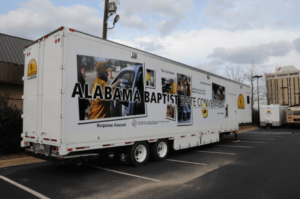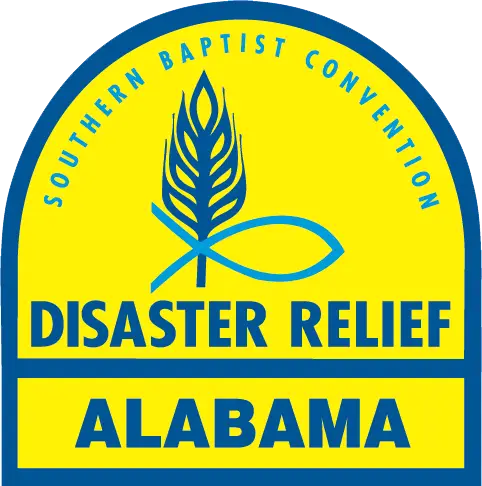Mass Feeding
 When disaster strikes, damage to a communities infrastructure is often the case. Resources such as electricity, water, communications or available food may be non-existent. Alabama Baptist Disaster Relief mass feeding units have the ability to prepare thousands of meals every day. The units provide hot meals to feed survivors, first responders, utility crews, and other relief volunteers.
When disaster strikes, damage to a communities infrastructure is often the case. Resources such as electricity, water, communications or available food may be non-existent. Alabama Baptist Disaster Relief mass feeding units have the ability to prepare thousands of meals every day. The units provide hot meals to feed survivors, first responders, utility crews, and other relief volunteers.
- A mass feeding unit may set up at a location to prepare meals for the American Red Cross to distribute throughout the community as well as to emergency shelters.
- Feeding unit personnel may operate The Salvation Army’s mobile kitchen.
- A feeding team may also employ the use of a church fellowship hall and kitchen.
 When disaster strikes, damage to a communities infrastructure is often the case. Resources such as electricity, water, communications or available food may be non-existent. Alabama Baptist Disaster Relief mass feeding units have the ability to prepare thousands of meals every day. The units provide hot meals to feed survivors, first responders, utility crews, and other relief volunteers.
When disaster strikes, damage to a communities infrastructure is often the case. Resources such as electricity, water, communications or available food may be non-existent. Alabama Baptist Disaster Relief mass feeding units have the ability to prepare thousands of meals every day. The units provide hot meals to feed survivors, first responders, utility crews, and other relief volunteers.
- A mass feeding unit may set up at a location to prepare meals for the American Red Cross to distribute throughout the community as well as to emergency shelters.
- Feeding unit personnel may operate The Salvation Army’s mobile kitchen.
- A feeding team may also employ the use of a church fellowship hall and kitchen.
 Feeding units are strategically located in such a way so as to ensure that adequate supplies are readily available for the required number of meals. It is often the availability of these meals that enable other volunteers to function and care for disaster survivors.
Feeding units are strategically located in such a way so as to ensure that adequate supplies are readily available for the required number of meals. It is often the availability of these meals that enable other volunteers to function and care for disaster survivors.
